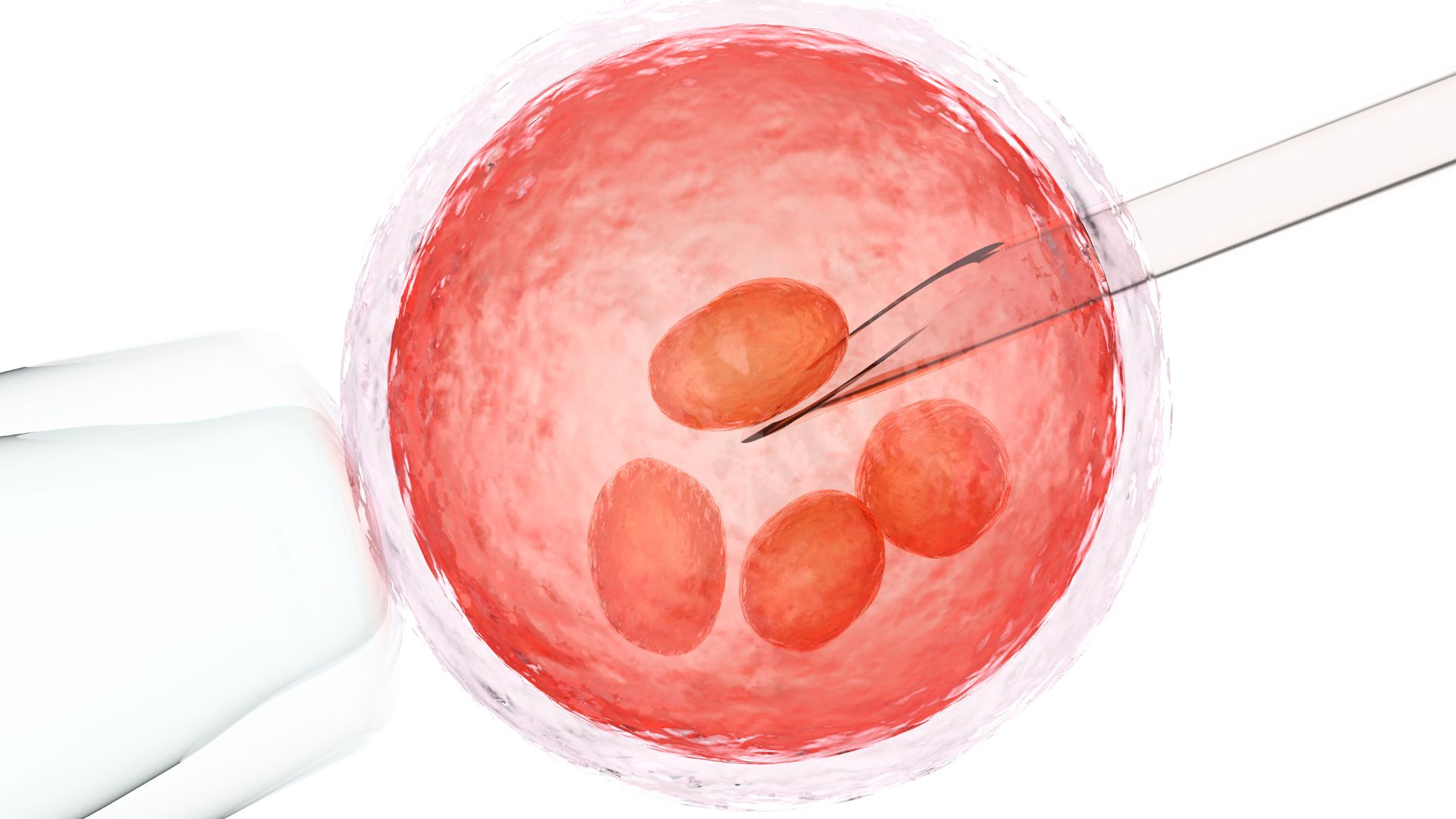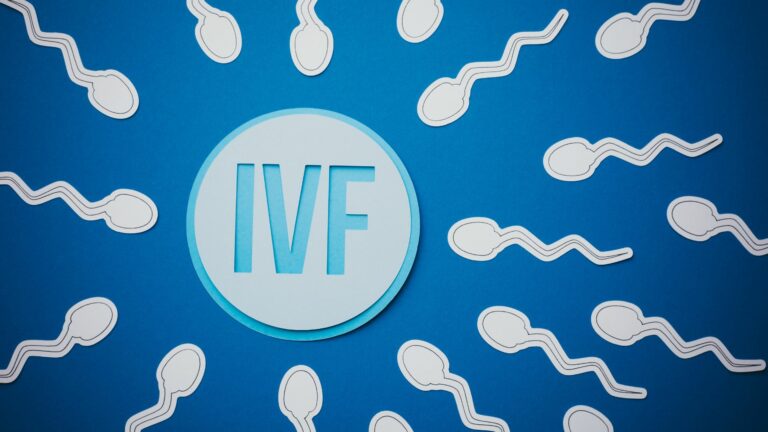
In vitro fertilization (IVF) can be a challenging and emotional journey, especially for couples in India where societal pressures around having children are pronounced.
When facing the difficult choice of whether to continue or stop IVF after multiple unsuccessful attempts, it’s essential to understand the various medical, financial, and personal factors at play.
By taking a closer look at the considerations involved in this complex decision, examining alternative family-building options, and prioritizing emotional well-being throughout the process, couples can feel more empowered and supported as they navigate their unique path to parenthood.
Key Takeaways
- Age, underlying conditions, and past IVF response are key factors when deciding about future attempts
- Financial strain from repeated cycles is an important consideration
- Exploring IUI, corrective surgery, adoption, or surrogacy may expand family-building options
- Seeking professional counseling and peer support is crucial for managing the emotional toll
- Open communication with your partner and care team helps you make the best personal choice
Medical Factors to Weigh When Considering Another IVF Cycle
One of the most significant elements impacting IVF success rates is the woman’s age. As a woman gets older, the quantity and quality of her eggs decreases.
This is why ovarian reserve testing, including evaluations of AMH (Anti-Mullerian Hormone) levels and antral follicle counts (AFC), provides valuable insights into the remaining egg supply.
| Age Range | Approximate IVF Live Birth Rate Per Cycle |
|---|---|
| <35 | 40-45% |
| 35-37 | 30-35% |
| 38-40 | 20-25% |
| 41-42 | 10-15% |
| >42 | <5% |
Discussing any underlying medical conditions, such as endometriosis, PCOS, or male factor infertility, with your doctor is also key.
Some issues may require specific treatment approaches to optimize outcomes. For example, women with endometriosis may benefit from laparoscopic surgery prior to IVF to improve their chances of success.
Similarly, men with severe oligospermia or azoospermia may require testicular sperm extraction (TESE) or the use of donor sperm to achieve fertilization.
Thoroughly reviewing the details of previous IVF attempts, including medication response, egg yields, fertilization rates, and embryo quality, can help guide future cycle planning as well.
If a past cycle resulted in a low number of eggs retrieved or poor fertilization, adjustments to the stimulation protocol or the addition of ICSI may be warranted.
During a follow-up consultation with your fertility specialist, it’s important to ask detailed questions about:
- Personalized success rates based on your unique profile
- Potential adjustments to the stimulation protocol or procedures
- Whether further testing may be beneficial
Some additional tests that may provide useful information include:
- Hysteroscopy to evaluate the uterine cavity
- Endometrial receptivity analysis (ERA) to identify the optimal window for embryo transfer
- Preimplantation genetic testing (PGT) to screen for chromosomal abnormalities in embryos
Seeking a second opinion from another reputable IVF specialist can also offer a fresh perspective and additional insights to consider.
Financial Considerations
The costs associated with IVF treatment in India can add up quickly, especially when multiple cycles are needed.
In addition to the base cycle price, there are often expenses for medications, pre-cycle testing, genetic screening, and embryo freezing to factor in.
| IVF Treatment Component | Approximate Cost Range (INR) |
|---|---|
| Base IVF cycle | 1,00,000 – 2,50,000 |
| Medication | 50,000 – 1,00,000 |
| ICSI | 50,000 – 70,000 |
| Embryo freezing | 15,000 – 25,000 per year |
| PGT | 25,000 – 50,000 |
| Frozen embryo transfer | 40,000 – 75,000 |
For some couples, IVF may be covered by insurance or financed at manageable rates. But for many, the financial burden of repeated attempts can be substantial.
A single IVF cycle with medication can cost upwards of 2 lakh rupees, and multiple cycles may be needed to achieve success.
Before pursuing another cycle, couples should carefully assess the short-term and long-term financial impact, including:
- Creating a detailed budget of anticipated costs
- Evaluating insurance coverage and financing options
- Reflecting on the emotional strain of prolonged, expensive treatment
Actionable steps:
- Schedule a detailed financial consultation with your clinic’s billing department
- Explore grants, scholarships, and IVF discounts for qualifying couples
- Assess your family’s broader financial picture and goals
- Consider traveling for IVF to regions with lower treatment costs if feasible
Some options for financing IVF include:
- Medical loans through banks or specialized lenders
- Crowdfunding platforms like Milaap or ImpactGuru
- Employee benefits or health savings accounts
- Personal loans or lines of credit
It’s also wise to factor in potential ongoing expenses like prenatal care and childcare costs when budgeting for treatment.
Being realistic about the bigger financial picture can help you make informed decisions about pursuing or pausing treatment.
Alternative Paths to Parenthood
While IVF can be a powerful tool, it’s not the only option for building a family. Depending on your specific diagnosis and preferences, exploring alternative routes may help expand your horizons:
Intrauterine Insemination (IUI)
For some couples, IUI may be a less invasive and costly treatment to attempt before moving to IVF. The sperm is placed directly into the uterus to bypass the cervix and improve fertilization odds.
Success rates for IUI depend on factors like age, underlying cause, and medication used, so its appropriateness varies case-by-case.
Some conditions that may have better success with IUI include:
- Mild male factor infertility
- Cervical factor infertility
- Unexplained infertility in younger women
- Minimal or mild endometriosis
The success rates of IUI are generally lower than IVF, with live birth rates ranging from 10-20% per cycle depending on the specific circumstances. Multiple cycles (often 3-6) may be recommended before moving on to IVF.
Corrective Reproductive Surgery
In select situations, surgically addressing issues like blocked fallopian tubes, uterine abnormalities, or endometriosis can enhance natural conception chances or future IVF outcomes.
The risks and benefits of surgery should be carefully discussed with your doctor.
Some common corrective reproductive surgeries include:
- Laparoscopy for endometriosis, pelvic adhesions, or tubal disease
- Myomectomy to remove uterine fibroids
- Hysteroscopy to address intrauterine adhesions, polyps, or septums
- Tubal reversal surgery for women who have had a prior tubal ligation
The decision to proceed with surgery depends on various factors like age, ovarian reserve, the severity of the condition, and treatment history.
Generally, the best candidates are younger women with good ovarian reserve and a surgically correctible issue significantly impacting fertility.
Actionable steps:
- Ask your doctor if IUI or reproductive surgery could be viable for your case
- Research success rates and risks of potential procedures
- Seek a second opinion from a reproductive endocrinologist or minimally invasive gynecologic surgeon
Adoption
For some, adoption can be a fulfilling way to grow their family. The process of adopting in India is complex, with regulations varying between states.
The Central Adoption Resource Authority (CARA) oversees the procedure. Prospective adoptive parents should educate themselves on the latest rules, costs, wait times, and key considerations.
Some important aspects of the adoption process in India include:
- Registering with CARA and undergoing a home study
- Specifying preferences for the child’s age, gender, and health status
- Waiting for a referral and accepting the match if appropriate
- Filing an adoption petition and completing the legal process
- Undergoing post-adoption follow-ups as required
Domestic adoption costs in India range from 50,000 to 1 lakh rupees on average, while international adoptions can exceed 5 lakhs when accounting for travel and agency fees.
Wait times vary but are typically longer for infants, especially healthy girls, due to a shortage of available children compared to prospective parents.
Support groups and counseling can be valuable resources when navigating the emotional aspects of adoption, such as bonding with your child, talking about adoption with family and friends, and managing potential challenges like developmental delays or identity questions.
Surrogacy
While laws around surrogacy in India have shifted over time, gestational surrogacy is currently permitted for Indian couples with a valid infertility diagnosis.
Still, it’s a significant undertaking. Thoroughly research the legal landscape, costs, emotional aspects, and reputable agencies or clinics before pursuing this path.
Some key points about surrogacy in India:
- Only altruistic surrogacy is permitted, meaning the surrogate can only be compensated for medical and pregnancy-related expenses
- The intended parents must be Indian citizens and married for at least 5 years
- The surrogate must be a close relative of the intended parents
- The surrogate must have a child of her own and be 25-35 years old
- Proper informed consent and legal agreements are required
Pursuing surrogacy in India with a relative is rare. Many couples who are interested in surrogacy explore options abroad in countries with more established programs like the United States, Canada, or Ukraine.
International surrogacy costs can range from 50-80 lakhs, so it’s a path only feasible for those with substantial resources.
Actionable steps:
- Connect with adoption and surrogacy support communities in India for guidance
- Consult with a legal professional well-versed in current adoption and surrogacy regulations
- Explore clinic options in Mumbai, Delhi, Kolkata, Hyderabad, Bangalore, Mangalore, Indore, Bhubaneswar, Mysore, Gulbarga and other major cities
- Consider international surrogacy if you have the resources and flexibility
Prioritizing Emotional Health
Undoubtedly, grappling with infertility and making hard choices about family-building exacts an emotional toll.
Feelings of grief, frustration, inadequacy, and strain on the relationship are normal and valid. Proactively tending to your emotional wellbeing is vital.
Some steps you can take:
- Seek counseling from a therapist specializing in infertility
- Join peer support groups to connect with others who understand
- Practice stress-management techniques like meditation, journaling, or exercise
- Openly communicate your experience with trusted loved ones
- Take breaks from treatment as needed to recharge
Ways to recharge during a break:
- Take that vacation you’ve been putting off
- Indulge in hobbies that bring you joy
- Try a new mind-body practice like yoga or acupuncture
- Spend quality time with your partner doing non-IF-related activities
- Enjoy media and humor that doesn’t focus on kids or pregnancy
If feelings of hopelessness, worthlessness, or loss of interest in daily life persist, it’s important to promptly seek professional help to evaluate for depression. Counseling and medication may be necessary to support you during this difficult chapter.
Reflect on strategies that have helped you cope with the two-week wait or previous failed cycles as a starting point.
With time and support, many find that complex emotions like anger or sadness begin to subside, even if the longing for a child remains.
Remember, your mental health is just as important as your physical health throughout your fertility journey.
Conclusion: Making a Thoughtful, Individual Choice
Ultimately, whether to pursue further IVF attempts after setbacks is a highly personal decision. A choice that is right for one family may not be right for another.
By carefully evaluating the medical considerations with your doctor, assessing the financial impacts, understanding alternative paths, and caring for your emotional needs, you can arrive at a resolution that aligns with your values and hopes.
Additional steps as you navigate this crossroads:
- Have an open, honest discussion with your partner about your family vision
- Seek a second opinion from another IVF specialist for a fresh perspective
- Take time to sit with your options before rushing a decision
- Trust your instincts about the best path forward
No matter where your journey leads, know that you are not alone and that your story matters. Through connecting with resources and supporting each other, the Indian infertility community can find resilience and fulfillment.
Additional Resources
For more information and support, explore:
- IVF FAQs: Answers to common questions
- IVF Community Groups: Online forums and meet-ups
- Tips for Choosing an IVF Clinic in India: Key decision factors
- Fertility Preservation Options: Proactive treatments to consider
- The Future Outlook for IVF: Emerging research and technologies
Overall, this expanded article provides a comprehensive overview of the key considerations and resources for couples navigating IVF after multiple failed cycles in India.
By delving into the medical, financial, and emotional factors at play, examining alternative family-building paths, and underscoring the importance of support, this piece aims to inform and empower readers facing this difficult crossroads.






